by Dot Cannon
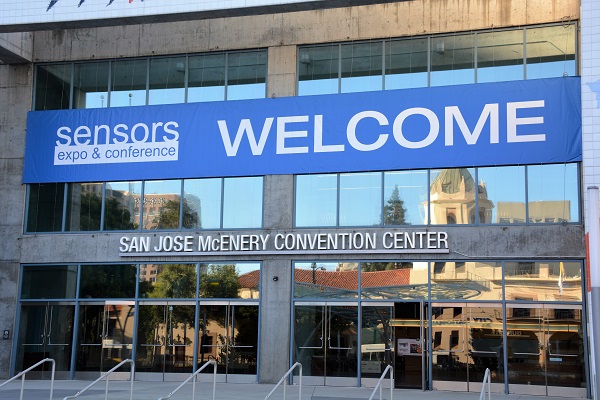
“It’s really about telling the story of our lives,” said environmentalist, UN Goodwill Ambassador and actor Adrian Grenier.
Adrian was discussing both his work as an environmentalist, and on his farm in Texas, in a keynote interview with Questex CEO Paul Miller as Sensors Converge Virtual began on Monday morning.
As the only virtual platform for the design engineering community, this July edition of Sensors Converge includes keynote presentations, panel sessions and exclusive interviews. From now through this Wednesday, July 20th, their content will include ninety minutes of programming, live-streamed globally each morning, starting at 8 am, Pacific time.
Meanwhile, on-demand content is available through the Partner Content Hub–including video recordings of sessions from Sensors Converge, a live event which ran from June 20th through June 22nd in San Jose.
We’ll just have to share more of that with you in a future post.
Now, here are highlights of this morning’s keynote interview, entitled “Technology & Sustainability: Working Together for a Better Future.”
A storyteller’s new chapters
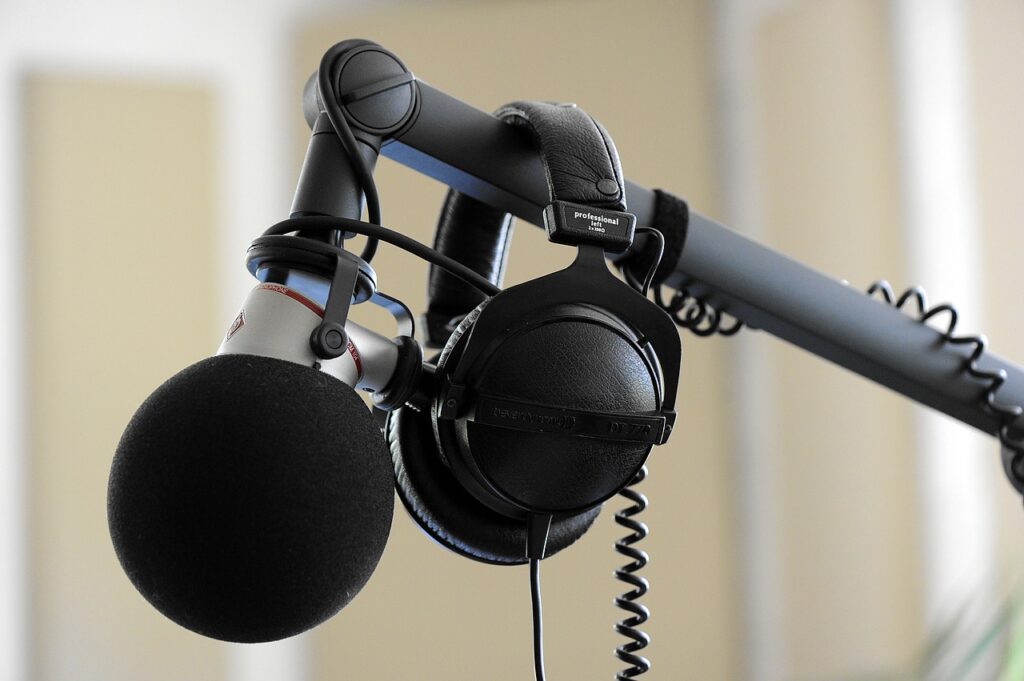
Paul introduced his guest as a “longtime actor, producer and director turned environmentalist, farmer, philanthropist and and impact investor”. He then began the interview by asking Adrian,, “Why the change?”
“I (really don’t see it) as a change,” Adrian replied. “…I’ve been in storytelling through…film, in theatre, as an actor. But really, environmentalism is, ‘how do we tell the story of our relationship to the planet?’ And now, as an apprentice farmer, I’m learning how to actually tell that story on the land with the best artist in the world, which is nature.”
As Paul and Adrian talked about Adrian’s investment firm, DuContra Ventures, Adrian explained that “du contra”, in Portuguese, means “to push against”. The startups in which he invests, he said, are about more than financial returns.
“We’re looking (beyond money to see) how much positive impact (they’re) going to create around the world,” Adrian explained.
Eyes–and hearts–on the world
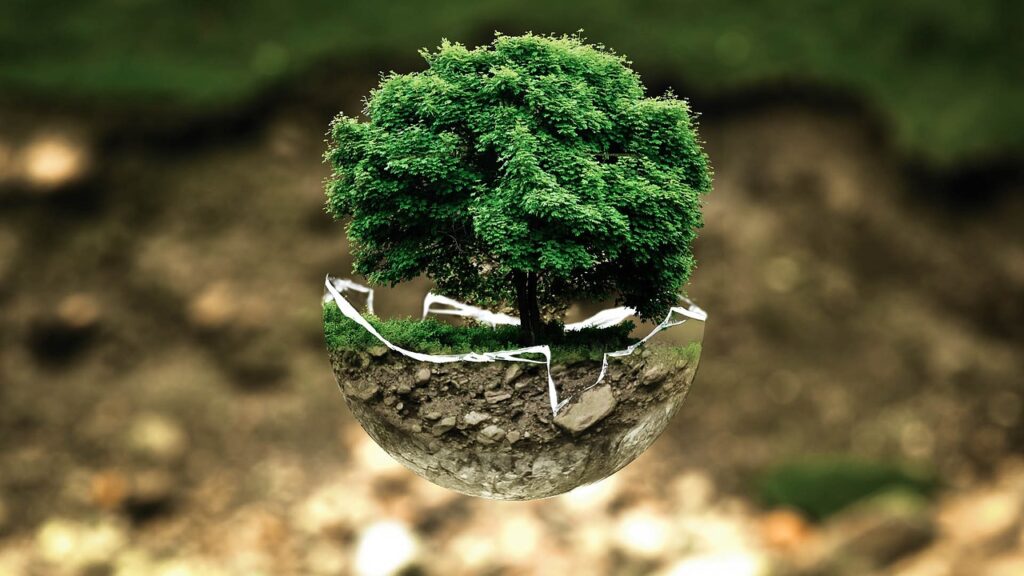
The discussion soon moved to environmental impacts from business.
“I think that’s one of the reasons why our environment is doing so badly, is that we don’t have eyes on what’s actually happening out in the world,” Adrian said.
“So when you buy something, it may be unreasonably cheap, because you’re not accounting for all the hidden costs. But if you have a technology that can show, (what something is actually costing in various ways), then you can have an accurate price for in item for example.”
Paul and Adrian talked about the Lonely Whale Foundation, a nonprofit which Adrian co-founded in 2015. Lonely Whale’s mission, as stated on their website, “is simple: to prevent plastic waste from entering the ocean.”
“Being from a storytelling perspective, (when I first started Lonely Whale, we were targeting the consumer hearts and minds,” Adrian said.
“Can we get people to have a deeper relationship with what they consume and the environment, so they can make better consumer choices?”
Radically collaborating on plastic
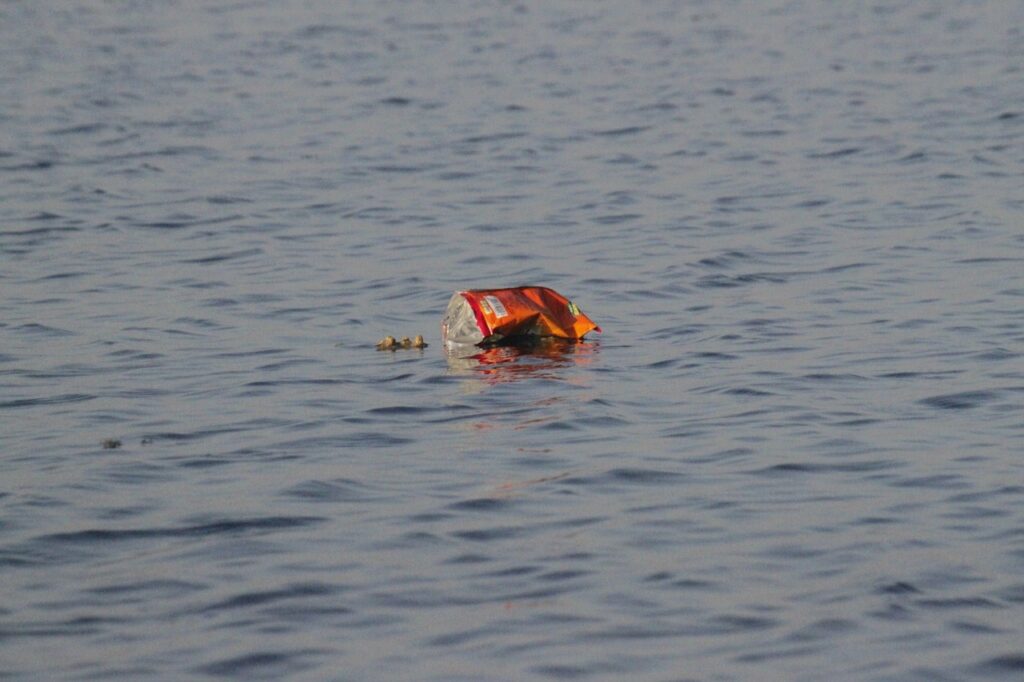
First, Lonely Whale convinced users to give up single-use plastic straws, through their highly successful “Stop Sucking” campaign. But Adrian realized that the worldwide problem of mismanaged plastic waste had much deeper roots.
“There’s not one uniform way that we recycle,” Adrian said.
“So…we decided to try and tackle supply chain. Which was ambitious, for a little organization. But…one of our principles is radical collaboration.”
Accordingly, Adrian continued, Lonely Whale brought in a number of companies–an “international footprint” that included companies like Dell and Intel.
The companies agreed to build a supply chain for ocean-bound plastic.
“Instead of spending a lot of money to go out to the ocean and try to collect this stuff, let’s just hedge it before it gets there,” Adrian said.
“Let’s collect it and put it back in the economy.”
Besides building the supply chain, and reached out to get companies to agree to buy ocean-bound plastic and use it in their products.
“And that led us to PIP, Product Innovation Prize,” Adrian continued.
“We’re now innovating new materials that are better for the environment.”
Visions for the future
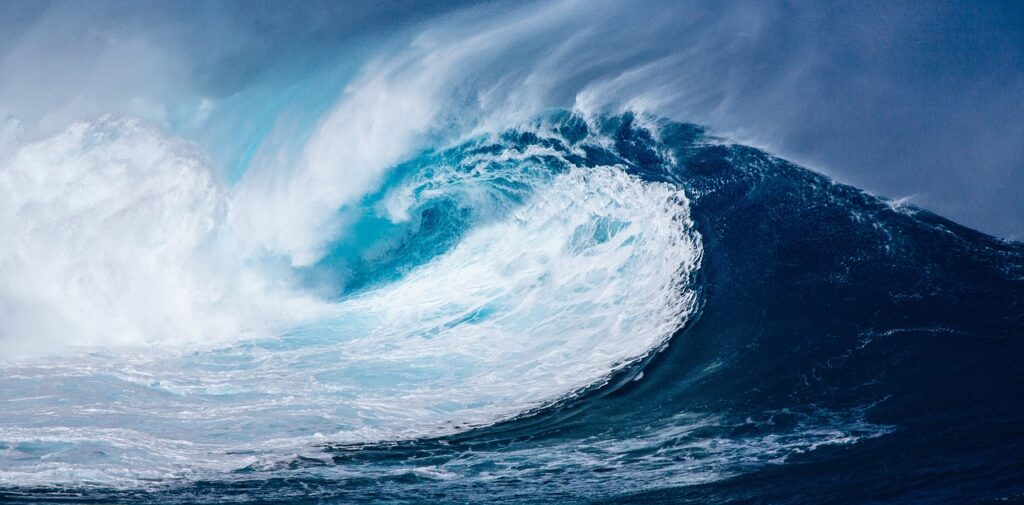
Paul asked Adrian if there were particular technologies he found especially exciting as he accomplishes his mission.
“I have visions and dreams of one day being able to instrument the ocean enough. Particularly marine-protected areas,” Adrian said.
“Because one of our missions is to bring people closer to the oceans…The problem with the ocean, it’s so abstract, so unrelatable to our everyday experience. So if we can use technology to bring the ocean closer to people, instrument (it) with different sensors, camera technology, (we can inspire people to make better choices on behalf of the ocean).”
Serving the planet
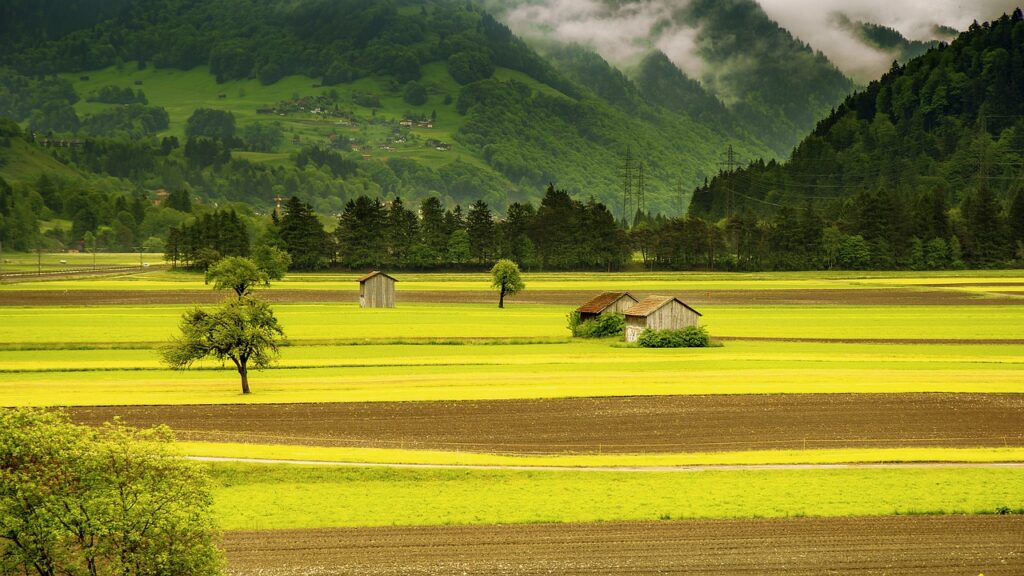
Adrian also talked about the innovations he’s implementing, literally, in his own corner of the world.
“On my farm, I’m looking to bring in technology to help understand how better to serve the earth,” Adrian said.
“I recently flew some drones and I took a LIDAR imaging of my land so we’re getting not only tree cover and topography but then ultimately bringing in other technology just to help understand how the water’s flowing, the mineral content (so) we can better run our farm and also provide more information to the outside world,” Adrian said.
For Adrian, who hails from New York, farming is a new experience.
“How hard is farming?” Paul wanted to know.
“I can’t tell you how hard it is, because I haven’t mastered it yet,” Adrian said.’
“…Once I get good at it, I can tell you exactly how hard it is, but to me, it’s impossible.”
A new farmer’s tribulations–and inspiration
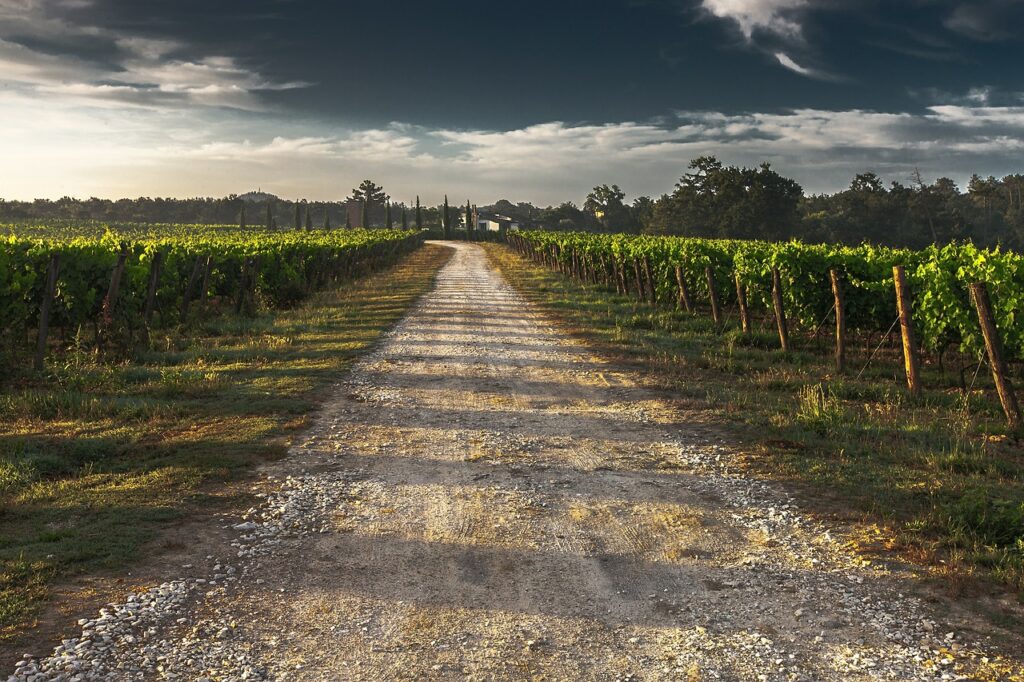
Twenty-first-century technology notwithstanding, Adrian said he’sbeen dealing with issues that have challenged farmers since the beginning of time. Currently, he explained, he’s in his second year of farming. So far, he believes the biggest challenge he’s encountered is a “psychological” one.
“Will I keep it up? Will I keep persevering over my failures?” he said.
But he’s also found a soul-nurturing aspect to his experiences.
“I grew up in New York City, where it was cutthroat, kill-or-be-killed,” Adrian said.
“I didn’t really have any strong male mentors. But now all the elder farmers have taken me under their wing and I’ve adopted, like, seven grandpas.
“And they all want to support me and bequeath the wisdom that they’ve learned. Because that’s the natural cycle of things.”
“You had no experience at farming before,” Paul clarified. Adrian confirmed that, although he is an environmentalist, he had previously lived a city life, “completely disconnected” from nature.
Compassion from experience
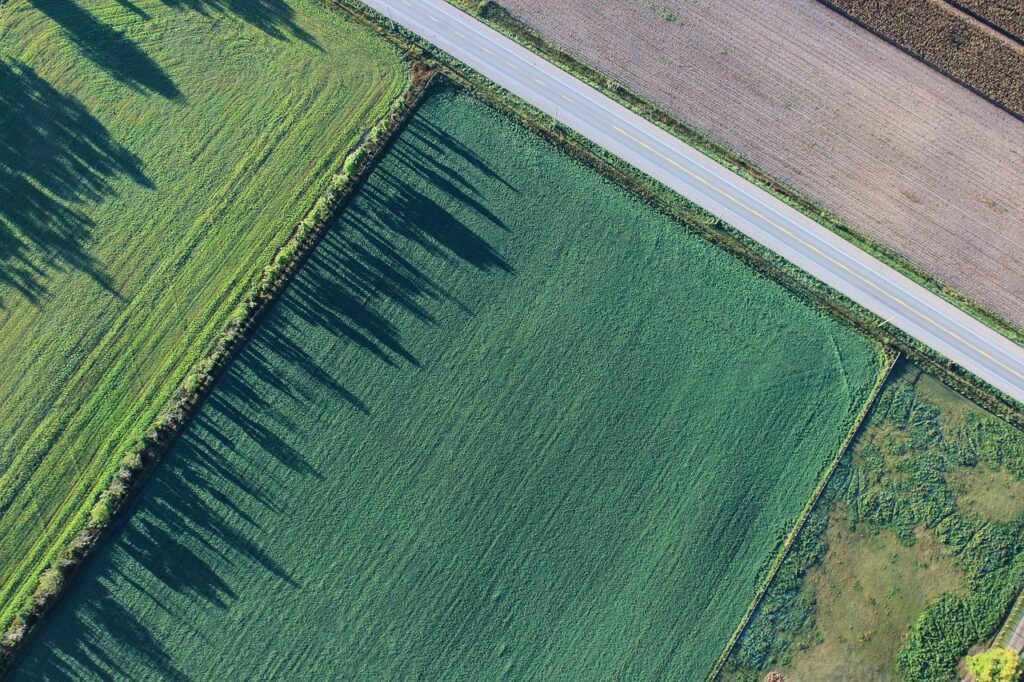
And his own recent experience has changed his perspectives.
“I have such a deeper respect now, for farmers,” Adrian commented.
“Before (my perspective was) this soap-boxy, ‘farmers should do better’ (with organic methods).
“…Now, every day, I’m like, ‘man, if I just had a pesticide right now’…”
Adrian said his own stint at farming had given him “deeper compassion” for farmers who choose to use chemical tools on their crops.
“They don’t have the privilege that I do, to fail a lot,” he explained. “…They’re going to do whatever they have to do, to make a living.
“Everything is at stake, that year, for them. And if one thing goes wrong, their family doesn’t eat.”
Adrian said he’s looking at different ways to incorporate technological innovations into his farming.
“I’d like to bring additional sensors into the farm, and then upload them to my 3D modeling, so that I can have a better visualization of what’s happening. And then I can communicate it out to the world.”
If something can go wrong…
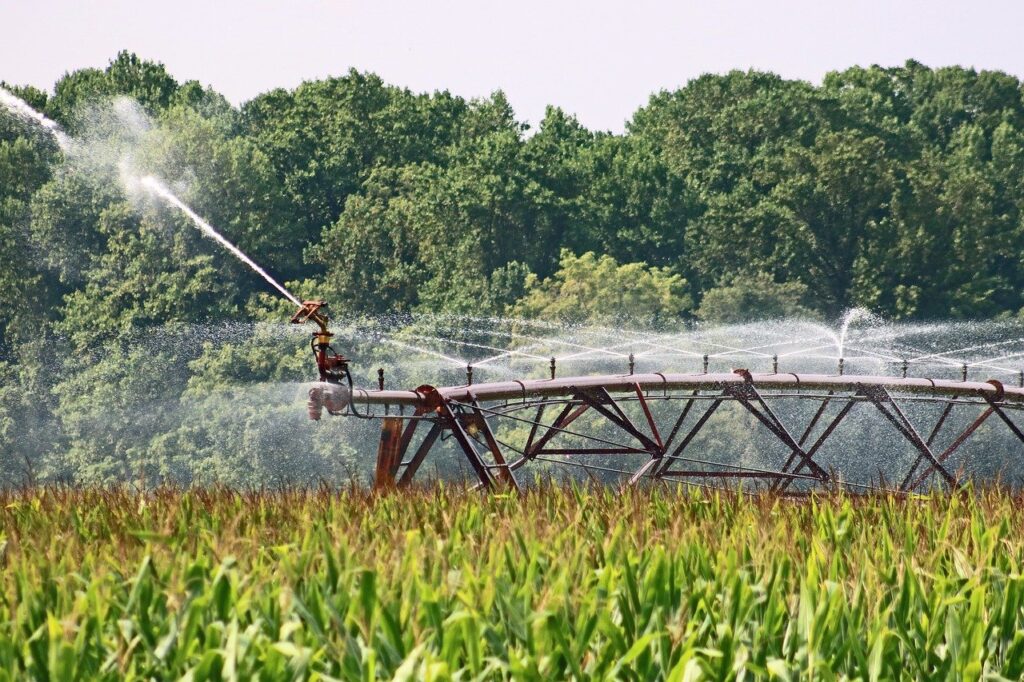
Paul asked what had been the biggest shock, during Adrian’s first year of farming.
“The human instinct is to try to control a situation,” Adrian replied.
“But in nature, it’s so complex. For example, I have a mini tree farm.
“…It requires water, so I had to bring irrigation. Okay, simple. Got it…but now you have to worry about the nutrient contents of the soil.
“…Now you’re set up, and…you feel like, you’re the man.
“…Then the deer come around. And they start eating your trees. (And you have to put up fence line, without disturbing the movement of other animals.)
“And then, once I solve for that, guess what happened? Gophers…and they start chewing on my irrigation line.
“It’s just one of those things where you are humbled every day. And it’s really a healthy humbling.
“…But that’s how nature works: pushes up against you, and forces you to innovate.”
